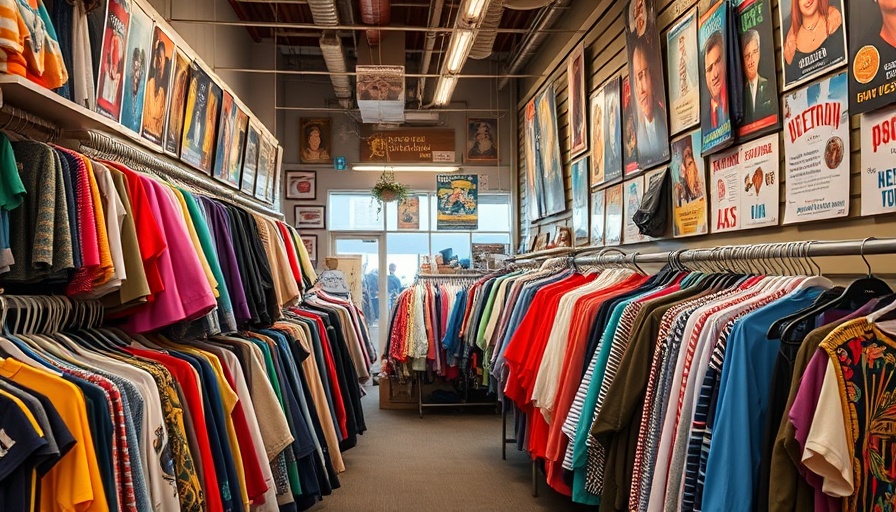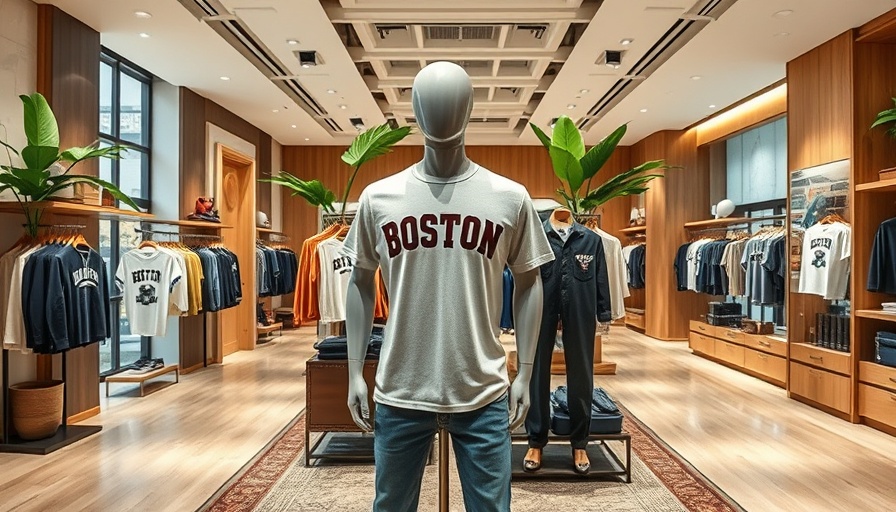
The Rise of Secondhand Shopping in Greater Boston
In Greater Boston, secondhand shopping is not only gaining popularity but evolving into a lifestyle choice that blends sustainability and fashion. As consumers become increasingly aware of the environmental impacts of fast fashion, stores like Covet and Found are stepping in to offer curated collections that reflect current trends while promoting eco-conscious purchasing.
Innovative Approaches to Secondhand Retail
Covet, with its four locations, and Found, located in Cambridge’s vibrant Central Square, illustrate how secondhand shops can present themselves as more than just thrift destinations. Each business prides itself on smartly curated inventories that include both secondhand garments and trendy new accessories aimed at attracting a diverse customer base. As Rob Singh, the co-founder of Found, emphasizes, "the uniqueness of resale pieces caters to a growing consumer desire for individual expression through fashion."
Emphasizing Sustainability and Style
The business strategies adopted by these stores coincide with a broader industry trend. Research by ThredUp indicates that the secondhand market is poised to eclipse the fast fashion sector by 2030, predicted to hit a staggering $74 billion in the United States alone. The critical elements in this growth are affordability and sustainability. With each secondhand purchase displacing approximately 17.6 pounds of carbon dioxide emissions, shoppers are not just making a stylish choice; they are contributing positively to the planet.
What the Future Holds for Secondhand Shops
With the secondhand shopping market expanding at three times the growth rate of traditional fashion retailers, local companies must continually innovate to remain competitive. Beyond simply selling items, stores like Found are incorporating DIY aspects—such as a charm bar for necklace and bracelet customization—to engage customers more tangibly. The charm bar at Found is not just a clever marketing tool; it's an invitation for shoppers to personalize their wardrobes creatively, further enhancing the shopping experience.
The Community Impact of Resale Culture
As these stores integrate modern decor and attract young shoppers who may not typically engage with secondhand items, they transform into community hubs. These unique shopping experiences foster connections between buyers and the concept of sustainable living. In this way, Covet and Found are not merely retail outlets but part of a larger movement advocating for eco-friendly lifestyle choices.
For those enthusiastic about sustainable fashions, a visit to Covet or Found is not just a trip to shop; it's an opportunity to partake in a growing cultural shift that values creativity, individuality, and a commitment to environmental stewardship. By choosing to shop secondhand, you not only discover unique pieces but also contribute to a healthier planet.
 Add Row
Add Row  Add
Add 




Write A Comment